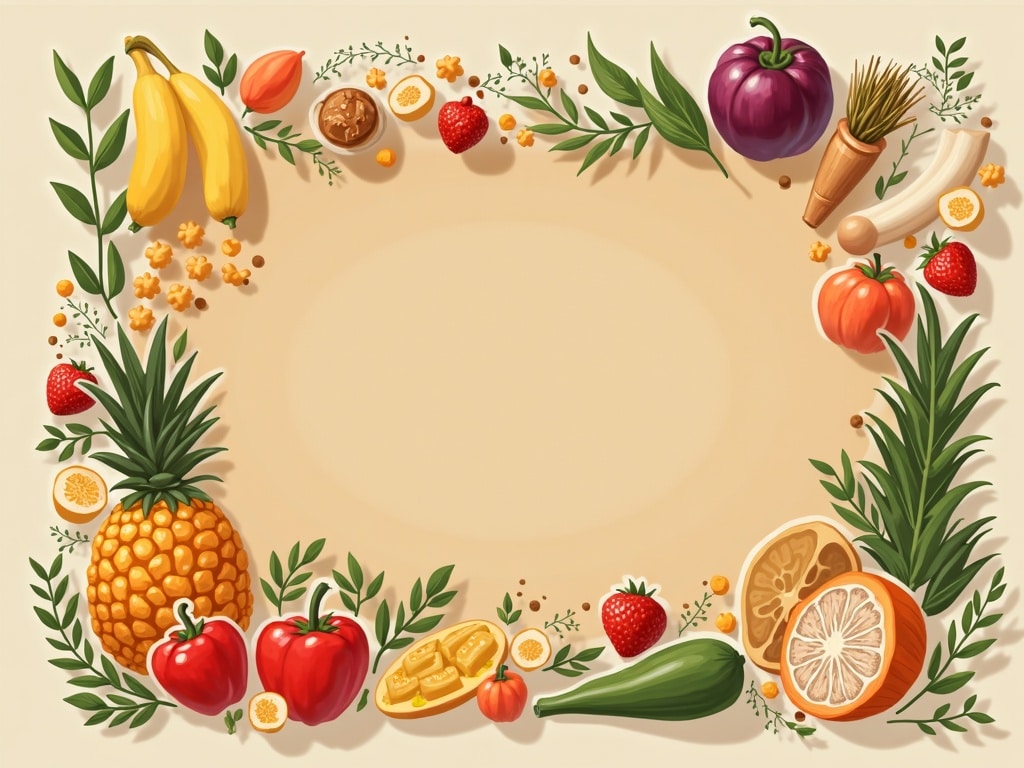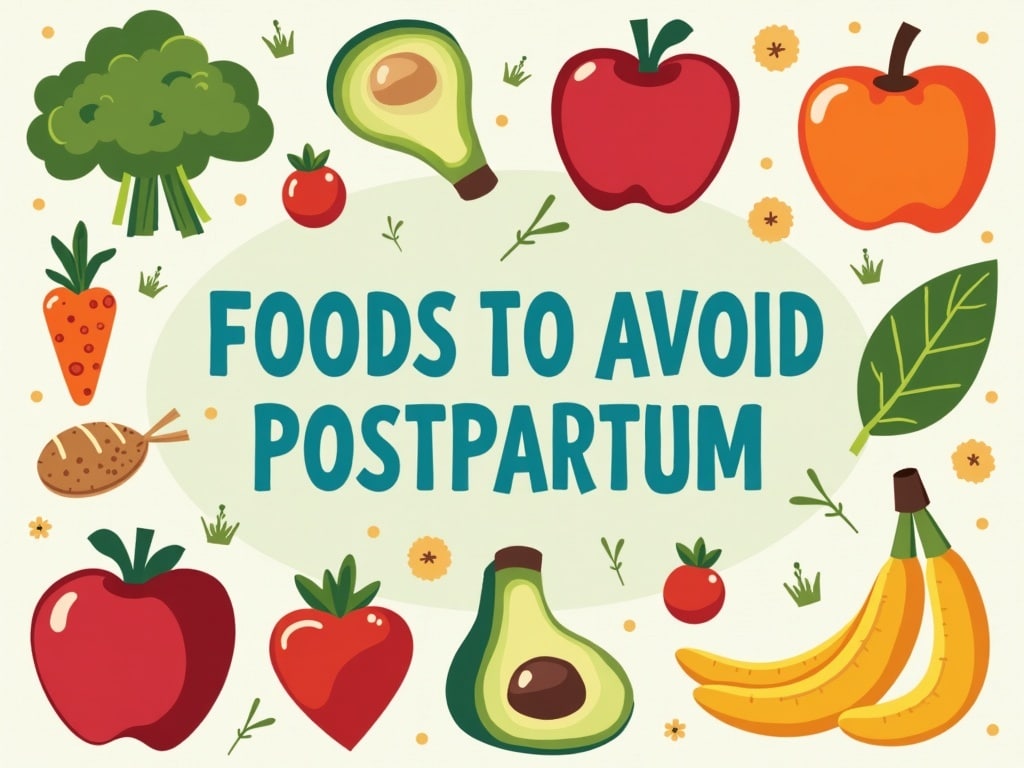Navigating Nutrition: Foods to Avoid Postpartum for Optimal Recovery
The arrival of a new baby is a joyous occasion, but it also marks the beginning of a crucial recovery period for the mother. While focusing on nourishing your body is paramount, knowing what to avoid is equally important. Postpartum nutrition plays a vital role in healing, energy levels, mood regulation, and successful breastfeeding if that's your chosen path. This guide will walk you through foods to avoid postpartum, ensuring you make informed choices for your well-being and your baby’s.
Why Postpartum Nutrition Matters
The weeks and months following childbirth are a period of significant physiological adjustment. Your body is working hard to recover from pregnancy and delivery, hormonal shifts are underway, and sleep deprivation can become the norm. What you eat directly impacts this process.
**Healing and Repair:Proper nutrition provides the building blocks for tissue repair, wound healing (especially after a C-section or episiotomy), and regaining strength.
**Energy Levels:Fatigue is a common complaint among new mothers. Nutritious foods can help stabilize energy levels and combat exhaustion.
**Mood Regulation:Diet influences neurotransmitter production, which affects mood. Avoiding certain foods can help prevent or minimize postpartum mood swings.
**Breastfeeding Support:If breastfeeding, your diet directly affects the quality and composition of your breast milk, impacting your baby's health and development.
Foods to Limit or Avoid Postpartum
While a balanced diet is key, some foods can hinder your recovery or negatively impact your baby if you’re breastfeeding. Here’s a breakdown of what to limit or avoid:
1. High-Mercury Fish
Mercury is a neurotoxin that can be harmful to both you and your baby. High levels of mercury can affect the baby’s brain and nervous system development through breast milk.
**Examples to Avoid:Swordfish, shark, king mackerel, tilefish, and bigeye tuna.
**Safer Alternatives:Salmon, shrimp, cod, and light canned tuna are lower in mercury and can be consumed in moderation (check guidelines for recommended serving sizes).
2. Highly Processed Foods
These foods are typically low in nutrients and high in unhealthy fats, sugar, and sodium. They can contribute to inflammation, weight gain, and energy crashes.
**Examples to Avoid:Fast food, sugary cereals, packaged snacks (chips, cookies, candy), processed meats (hot dogs, bacon).
**Healthier Alternatives:Whole grains (oatmeal, quinoa, brown rice), lean protein (chicken, turkey, lentils), fruits, vegetables, and homemade snacks.
3. Excessive Caffeine
While a moderate amount of caffeine is generally considered safe, excessive intake can interfere with sleep, worsen anxiety, and potentially affect your baby if you are breastfeeding. Caffeine can pass into breast milk, potentially causing irritability or sleep disturbances in infants.
**Examples to Avoid:Excessive coffee, energy drinks, some teas, and chocolate.
**Recommended Limit:Aim for no more than 200-300mg of caffeine per day (equivalent to about 1-2 cups of coffee).
4. Alcohol
The effects of alcohol on a developing baby are well-documented. If you are breastfeeding, alcohol can pass into your breast milk and potentially harm your baby's brain development.
**Recommendation:The safest approach is to avoid alcohol entirely while breastfeeding. If you choose to consume alcohol, wait at least 2-3 hours per drink before breastfeeding to allow the alcohol to metabolize out of your system. Pumping and dumping is an option, but it does not eliminate the alcohol from your bloodstream.
5. Sugary Drinks
Sodas, juices, and sweetened beverages offer empty calories, contribute to weight gain, and cause blood sugar spikes and crashes. These fluctuations can affect your energy levels and mood.
**Examples to Avoid:Sodas, fruit juices, sweetened iced tea, energy drinks.
**Healthier Alternatives:Water, infused water with fruits and herbs, unsweetened tea, sparkling water.
6. High-Fat, Fried Foods
These foods are often difficult to digest and can contribute to heartburn, indigestion, and weight gain. They offer little nutritional value and can displace more nutrient-dense options.
**Examples to Avoid:French fries, fried chicken, doughnuts, and heavily processed snacks.
**Healthier Alternatives:Baked or grilled foods, steamed vegetables, and lean protein sources.

7. Common Allergenic Foods (If Baby Shows Sensitivity)
If you are breastfeeding, certain foods in your diet can potentially trigger allergies or sensitivities in your baby. This is more relevant where there's a family history of allergies. Common culprits include:
**Examples:Dairy products, soy, wheat, eggs, nuts, and shellfish.
**What to do:If you notice symptoms like fussiness, colic, skin rashes, diarrhea, or vomiting in your baby after you consume certain foods, consider eliminating that food from your diet for a week or two to see if symptoms improve. Consult with your pediatrician or a registered dietitian for guidance on elimination diets.
8. Gas-Producing Foods (If Baby Shows Sensitivity)
Certain foods are known to cause gas and bloating in some individuals, and these effects can potentially transfer to your baby through breast milk, leading to fussiness and discomfort.
**Examples:Broccoli, cabbage, Brussels sprouts, beans, onions, peppers.
**What to do:Pay attention to your baby's reaction after you consume these foods. If they seem particularly gassy or fussy, try reducing your intake or temporarily eliminating them.
9. Spicy Foods (Potential Irritant)
While not an issue for all babies, spicy foods can sometimes irritate a baby's digestive system, leading to discomfort or changes in stool.
**Recommendation:Monitor your baby's reaction after you consume spicy foods. If you notice any adverse effects, reduce your intake.
Foods to Prioritize Postpartum
Now that we've covered what to avoid, let's focus on what to include in your postpartum diet:
**Protein:Essential for tissue repair and muscle recovery. Good sources include lean meats, poultry, fish, eggs, beans, lentils, tofu, and Greek yogurt.
**Complex Carbohydrates:Provide sustained energy and fiber. Opt for whole grains like oats, quinoa, brown rice, and whole-wheat bread.
**Healthy Fats:Important for brain function, hormone production, and nutrient absorption. Choose sources like avocados, nuts, seeds, olive oil, and fatty fish.
**Fruits and Vegetables:Rich in vitamins, minerals, and antioxidants. Aim for a variety of colorful fruits and vegetables each day.
**Hydration:Drink plenty of water to stay hydrated and support milk production if breastfeeding.
Addressing Common Postpartum Concerns Through Diet
Specific dietary adjustments can help address some common postpartum challenges:
**Constipation:Increase fiber intake through fruits, vegetables, and whole grains. Drink plenty of water. Consider adding stool softeners if necessary, as advised by your doctor.
**Hair Loss:Ensure adequate protein and iron intake. Consider a postpartum multivitamin.
**Low Milk Supply:Stay well-hydrated. Consume foods known to support lactation, such as oatmeal, fenugreek (consult your doctor before using supplements), and brewer's yeast. Frequent breastfeeding or pumping is key!
**Postpartum Depression/Anxiety:Focus on a balanced diet rich in whole foods. Consider incorporating foods rich in Omega-3 fatty acids (like salmon) and Vitamin D. Seek support from a healthcare professional.
Listen to Your Body
Every woman's postpartum experience is unique. Pay attention to how different foods affect you and your baby (if breastfeeding). Keep a food journal to track what you eat and any symptoms you or your baby experience. Don't be afraid to adjust your diet based on your individual needs and preferences.
Seeking Professional Guidance
If you have concerns about your postpartum diet or are experiencing any health issues, consult with your doctor, a registered dietitian, or a lactation consultant. They can provide personalized recommendations and support.
In conclusion, navigating the postpartum period involves making conscious choices about your diet. By understanding which foods to limit or avoid and prioritizing nutrient-rich options, you can support your body's recovery, boost your energy levels, and promote your overall well-being. Remember that self-care, including proper nutrition, is essential for both you and your baby during this special time.

